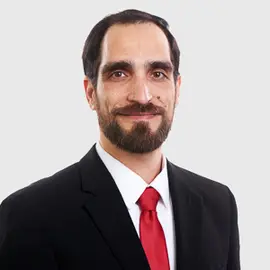Unlock the Power of Large Language Models
ApplyAt a glance
Qualification:
Certificate of attendance "Unlock the Power of Large Language Models" (2 ECTS)
Start:
20.08.2025 17:00
Duration:
5 evenings
Costs:
CHF 1'150.00
Location:
- ZHAW Zürich, Building ZL, Lagerstrasse 41, 8004 Zürich (Show on Google Maps)
- close to Zürich main station
Language of instruction:
English
Dates:
20.08.2025, 17:00-20:00
27.08.2025, 17:00-20:00
03.09.2025, 17:00-20:00
10.09.2025, 17:00-20:00
17.09.2025, 17:00-20:00
Objectives and content
Target audience
This course is designed for researchers and professionals such as scientists, engineers, software developers, and research managers interested in text-based generative AI. It covers the fundamentals of LLMs through a combination of theoretical lessons and practical sessions. Participants will gain the knowledge and skills needed to apply cutting-edge LLM technologies to their specific use cases.
Objectives
The course empowers attendees with tangible skills to utilize and customize LLMs to suit their use cases. Through interactive exercises, it offers practical experience with LLMs and their relevance within their respective domains.
Content
- Basics of text analytics and Natural Language Processing (NLP)
- Understanding the basics of (Large) Language Models (LLMs) and their evolution
- Types of LLMs, their characteristics, and applications (encoders, decoders, …)
- From data to features: fundamentals of data representation and adapters
- Basics of Unix system management, HPC concept, and cloud deployment
- Basics of LLM training, pre-training, and post-training
- Supervised finetuning
- Unsupervised finetuning
- Case studies in life sciences: summarization, question answering, protein function prediction
- Challenges and limitations of LLMs: factual inconsistency, and hallucination
Participants
- Learn how to approach LLMs for their own use cases
- Learn basics of GPU (on-premises/on the cloud) computation for LLM finetuning
- Learn how to select LLMs and adapt them to a particular problem
- Get familiar with a wide range of applications of LLMs in different domains
- Get familiar with applications of LLMs beyond text
Overview continuing education
You can find an overview of our continuing education programmes in the field of computational science and artificial intelligence here.
Methodology
Lectures, self-study(pre/post), coding exercises, final group/individual project work
Assessment
By the third session, participants propose a project relevant to their field of interest on which they apply their knowledge of LLMs to solve a problem. After modification and approval, they have a few weeks to implement and submit their projects.
Enquiries and contact
-

Ahmad is a trained computer scientist and linguist with a Ph.D. in computer science from Charles University in Prague, specializing in computational linguistics. As a senior scientist and lecturer, he is involved in multiple projects focused on improving accessibility in medical textual informatics. His primary research interests include Large Language Models, Generative AI, Natural Language Processing, and the Semantic Web.
Provider
Application
General terms and conditions
General terms and conditions for continuing education courses
| Start | Application deadline | Registration link |
|---|---|---|
| 20.08.2025 17:00 | 06.08.2025 | Application |